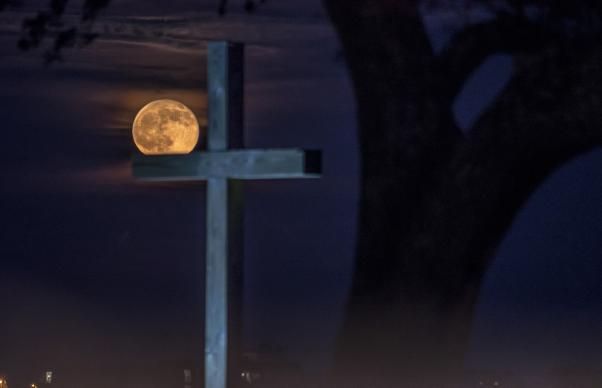
Did you know that Halloween began as a church holiday, or holy day?
Halloween (or All Hallows’ Eve) means “the evening of Hallows.”
“Hallows” is simply an older English way of saying “saints” — so, the Evening of Saints.
But why “the evening?” The ancient Jews understood the day began at sunset rather than sunrise, just as we see in Genesis 1: “And it was evening, and it was morning, day one.” (Genesis 1:5). So the first worship service of the day would be in the evening.
Put it all together and Halloween refers to the first worship service on All Saints’ Day (Nov. 1 in the Western Christian tradition), held on the evening of Oct. 31.
So how did this observance get connected to jack-o-lanterns, ghosts, and things that go bump in the night? That connection comes from early cultural festivals between autumn and winter, a time between warmth and cold, harvest and dormancy, between life and death, so to speak. Some cultures understood this as a transition time where the lines between realms thinned and spirits of the dead returned to earth.
Christian missionaries and bishops, particularly in England and parts of Western Europe, had concerns that these practices and beliefs ran counter to the Christian understanding of the resurrection of the dead. In the 8th century, the church added prayers to Christian masses remembering the dead and anticipating their resurrection. These were some of the first prayers connected to All Saints’ Day celebrations.
Cultural Halloween celebrations have continued to evolve alongside the church celebrations. Some churches now offer alternatives to traditional activities, choosing events that celebrate life rather than death, offering safe fun for children or making the day one to “treat” or give to others.
Because of Halloween’s association with death and darkness, some Christians have concerns about it. But it can be a time to acknowledge our fears knowing that Jesus’ resurrection overcame death. Our hope is for the resurrection of the dead and the fullness of life in the new creation in the age to come.
This content was produced by Ask The UMC, a ministry of United Methodist Communications. View this article on UMC.org.
